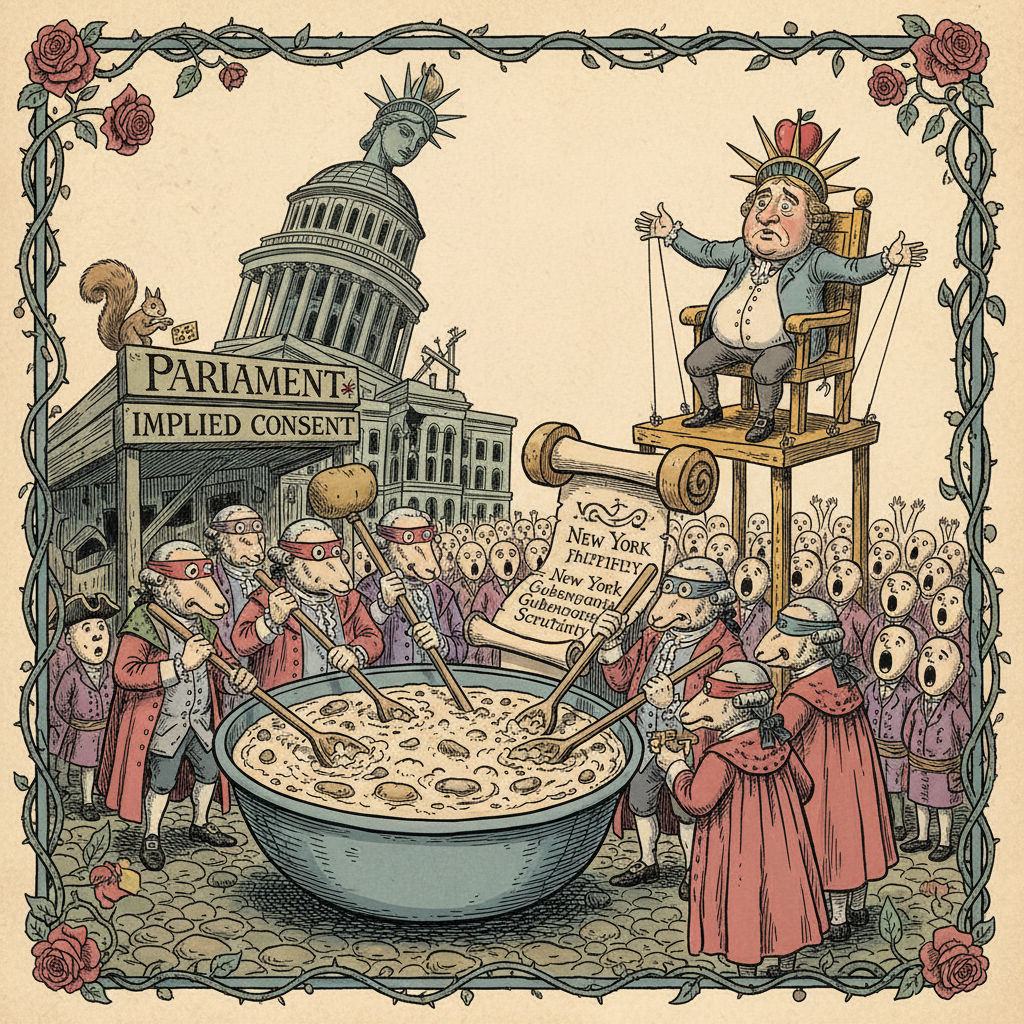Political strategists are dissecting Representative Elise Stefanik's latest maneuver in the New York gubernatorial contest, a tactic that seeks to define an opponent through distant ideological linkages.
Details:
- Representative Stefanik’s campaign strategy aims to tie Governor Kathy Hochul to New York Assemblyman Zohran Mamdani, suggesting a shared ideological front.
- This gambit echoes the imperial Crown’s assertion of 'virtual representation,' where colonial interests were deemed aligned with Parliament’s intentions without actual consent.
- The implied guilt by association bypasses direct policy debate, presenting a pre-ordained political reality rather than one forged through democratic deliberation.
- The objective appears to be the establishment of political affiliation through decree, bypassing the messy complexities of individual platforms and voter mandates.
- Critics observe the approach as a novel 'Act of Association,' not between colonies, but between disparate political figures to impose a convenient narrative.
Why it Matters:
The historical echoes are unsettling. Just as colonists resisted Parliament's claims of 'virtual representation' as an arbitrary imposition on their liberty, so too does this modern tactic bypass the essential mechanisms of direct representation and informed consent. It attempts to craft political outcomes through rhetorical force rather than substantive argument, undermining the very foundation of electoral self-governance. This erosion of genuine political discourse sets a dangerous precedent, where perceived association becomes a substitute for actual policy or record. As John Dickinson famously warned, "A FREE people are not to be taught by the CARDS, or the DICE, but by the dictates of their own reason." To permit such an approach is to tolerate the slow, quiet imposition of an external will upon the electorate, a subtle yet profound threat to the principle of government by consent.
